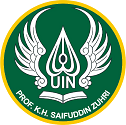The Effectiveness of The Amil Zakat Certification in Increasing Amil Competence at BAZNAS Cilacap Regency
DOI:
https://doi.org/10.24090/icip.v1i1.300Keywords:
Effectiveness, Amil Zakat, Certification of Amil Zakat, Competency of Amil ZakatAbstract
Many zakat amils who work in zakat management institutions have different educational backgrounds, experiences, and knowledge as well as understandings regarding good and correct zakat management schemes. Therefore, to create standardization of the same zakat management capabilities in each zakat management institution, the amil zakat certification is one of the right ways to go towards this. Amil zakat certification is formulated to create amil to have superior and tested work competence, to create effectiveness and efficiency in managing zakat. At BAZNAS Cilacap Regency itself, there are at least two amil who have participated in the amil zakat certification and are declared competent. For this reason, the purpose of this study was to determine the effectiveness of the amil zakat certification in increasing amil competence at BAZNAS Cilacap Regency.
This research uses a type of qualitative research with a field survey approach, where in this study the researcher intends to describe and describe what events or problems are following what is obtained in the field, namely BAZNAS Cilacap Regency, whether the data is in the form of written or oral words from the informants as well as other supporting data. In data collection techniques, the authors use observation, interviews, and documentation. Meanwhile, in data analysis techniques, the authors use data reduction, data presentation, and drawing conclusions or data verification. As well as data validity techniques, the authors use triangulation and member checks.
The results of the study show that the effectiveness of the amil zakat certification in increasing amil competence at BAZNAS Cilacap Regency, in general can be said to be quite effective. This is due to positive progress in improving the quality of the work competence of amil after they have been certified. In addition, supporting material as well as concrete evidence of increasing competence can be found by looking at the data on the number of muzaki and mustahik, the number of zakat, infaq, and alms beneficiaries, as well as the acquisition and distribution of zakat, infaq, and alms, which in general also continued to increase when two amil at BAZNAS Cilacap Regency had carried out certification and were declared competent.
References
Aziz, F. A. (2020). Menakar Kesyariahan Fintech Syariah di Indonesia. Al-Manahij: Jurnal Kajian Hukum Islam, 14(1), 1-18
Aziz, F. A., & Irfangi, A. (2021). Analysis Of Profit-Sharing Knowledge and Bank Interest On Understanding Of Sharia Banking Operational Management And Its Implications For Saving Students In Sharia Banking. PalArch's Journal of Archaeology of Egypt/Egyptology, 18(3), 525-538.
Aziz, F. A., Irfangi, A., & Dharin, A. (2022). The Role of Information Technology and Supply Chain Collaboration in Enhancing Innovation. International Journal Of Construction Supply Chain Management, 12(2), 143-156.
Aziz, F. A., Utami, H. T., & Wanojaleni, K. (2022). Socio-Economic Factors, Islamic Financial Literacy and Personal Financial Management in University Lecturers in Indonesia. Baltic Journal of Law & Politics, 15(2), 22-31.
Aziz, F. A. (2023). Organizational Revitalization, Future-Oriented Leadership, and Technology-Based Communication: Encouraging Work Motivation and Commitment of Islamic Boarding School Educators in Cilacap Regency. CEMJP, 31(2), 1282–1294. Retrieved from https://journals.kozminski.cem-j.org/index.php/pl_cemj/article/view/883
Aziz, J. A. (2011). Reformulasi konsep najis ala Ahmad Hassan (1887-1958). Al-Manahij: Jurnal Kajian Hukum Islam, 5(1), 39-52.
Aziz, J. A. (2012). Transformasi Akad Muamalah Klasik dalam Produk Perbankan Syariah. Al-Tahrir: Jurnal Pemikiran Islam, 12(1), 21-41.
Aziz, J. A. (2014). Transformasi Akad Bay'al-Murabahah dari Konsep Fikih ke Produk Bank (Analisis Kritis Perspektif Fikih Muamalah). Al-Manahij: Jurnal Kajian Hukum Islam, 8(2), 247-266.
Aziz, J. A. (2015). Pemikiran Politik Islam Muhammad ‘Abid Al-Jabiri: Telaah terhadap Buku al-‘Aql al-Siyasi al-‘Arabi: Muhaddidatuh wa Tajalliyatuh. MIQOT: Jurnal Ilmu-Ilmu Keislaman, 39(1).
Aziz, J. A. (2017). Islamic Banking in Global Economic Context (Critical Studies of Operational System and Performance of Islamic Banking). AL-IHKAM: Jurnal Hukum & Pranata Sosial, 12(2), 343-361.
Aziz, J. A. (2017). Dekonstruksi Paragdimatik Pengembangan Zakat: Analisis Kritis Pemikiran Yusuf al-Qaradawi. Ijtihad Jurnal Wacana Hukum Islam dan Kemanusiaan, 17(2), 191-215.
Aziz, J. A., & Uswatusolihah, U. (2022). The Dichotomy Between Tabarru’and Mu’âwaḍah Contracts: Perspective of Indonesian Law of Obligation. Al-Manahij: Jurnal Kajian Hukum Islam, 16(1), 103-114.
Warsito, C. (2015). The Image of Financial Institution as Islamic Bank In Mediation Service Quality and Customer Satisfaction on Customer Loyalty in Purwokerto. Al-Iqtishad: Jurnal Ilmu Ekonomi Syariah, 7(2), 217-228.
Warsito, C., Solikhin, I., Farhah, N. U., & Wibisono, D. D. (2022). The Influence of Sharia Banks’ Corporate Image and Sharia Service Standardization on the Intention to Recommend to Others: The Mediating Role of Customer Satisfaction. International Journal of Management and Sustainability, 11(3), 115-130.
Warsito, C., Farhah, N. U., Adawiyah, W. R., & Wahab, N. A. (2022). Islamic Store Brand Engagement and Customer Loyalty Relationship. Ikonomika: Jurnal Ekonomi dan Bisnis Islam, 7(2), 151-176.
Hasan, M. A. K. (2016). Merajut Kerukunan Dalam Keragaman Agama Di Indonesia (Perspektif Nilai-Nilai Al-Quran). Profetika: Jurnal Studi Islam, 14(1), 66-77.
Hadi, R., & Basit, A. (2021). Sharia strategic economic model on digital zakat technology in Indonesia. Economic Annals-XXI, 187.
Hadi, R., Shafrani, Y., Hilyatin, D., Riyadi, S., & Basrowi, B. (2024). Digital zakat management, transparency in zakat reporting, and the zakat payroll system toward zakat management accountability and its implications on zakat growth acceleration. International Journal of Data and Network Science, 8(1), 597-608.
Sulasih, S., Suroso, A., Novandari, W., & Suliyanto, S. (2022). The role of digital technology in people-centered development: the basic needs approach in the Kampung Marketer Program. Jurnal Perspektif Pembiayaan Dan Pembangunan Daerah, 9(6), 493-502.
Sulasih, S., Novandari, W., & Suroso, A. (2023). Integration Uses and Gratifications Theory and Entrepreneurship Theory To Boost The MSMEs Marketing Performance Using Social Media. Calitatea, 24(194), 60-68.








